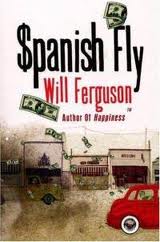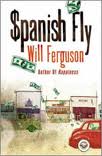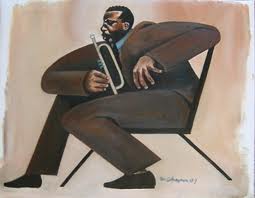21 Feb Fascinating Cons; Talented Negro’s in Spanish Fly
One of the fascinating aspects of our current book, Spanish Fly, is the multitude of cons. Every chapter is loaded with examples of the types of tricks used by the fast-talking swindlers of the day and those cons are entirely entertaining, especially when relayed by Ferguson—quite the Canadian funny man.

Reading about the ways in which the charmers, Rose and Virgil, deceive innocent—albeit often naïve and highly gullible—folks of their cash, is doing more than make me laugh. It’s encouraging me to be more observant and certainly a little more skeptical of schemes.
Chapter 28 opens with an interesting addition to Jack’s swindlers’ education when Virgil explains how he reads towns by their trees. Heading west, “into deeper hills”, the three-some are cruising the streets of Cuthbert, “a red-brick regional supply town lined with overhangs of oak.”
“The bigger the trees, the older the town,” Virgil says. “Older the town, older the money…For bigger trees, we need a bigger con.” It’s a particularly entertaining chapter as Virgil goes on to swindle the minister’s wife (the reader will cringe at the holy family being robbed of savings until the wife show’s her condemnation for others) by getting her to write a cheque to clear her account of “dirty money.”
There’s even a little foreshadowing as Jack comments, “It was fascinating to watch Virgil play people like that, like they were a fiddle and he was a man with twelve fingers. Made me wonder how someone would ever know they were being played. Made me wonder if I would know either.”
“Mrs. Pegler was a matronly woman of wide berth, who joined us at the park in a frantic whirl, her bosom arriving five beats ahead of the rest of her…She nodded. Breathless. Vigilant. Ready to do her civic duty.”
There’s plenty of humor, descriptive and mood-infused writing, and entertaining descriptions of the jazz clubs and swing dancing of the day in Chapter 29. There’s tribute to the talents of the “Negro” musicians and simply stated empathy for the plight of “coloured” people during the Depression, as Jack says, “I hadn’t had much contact with the Negro side of life, except in passing. I’d heard they were all hopheads and layabouts, but I never did put much stock in that. They’d been hardest hit by the times, no doubt about it.”
Check in for Wordy Wednesday for more insights into this ride of a read.

